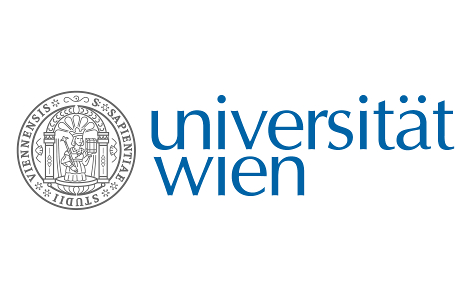Job description:
At the University of Vienna more than 10,000 personalities work together towards answering the big questions of the future. Around 2,900 of them contribute to enabling excellent research and teaching through their expertise and work in administration and organisation. They know how they can work best. Flexible, remote and with as much freedom as they need to develop their potential. You know, too? We are looking for a/an
Senior Software Engineer for Astronomical Data Flow Systems
53 Faculty of Earth Sciences, Geography and Astronomy Startdate: 01.11.2025 |
Working hours: 40 |
Collective bargaining agreement: §54 VwGr. IVa
Limited until: 30.07.2028
Reference no.: 4667
If you love to design and implement reliable software systems that support groundbreaking astronomical discoveries, work at the interface of hardware and software for world-leading observatories, and collaborate with international teams of scientists and engineers — then welcome to the team!
Our ground-based astronomical instrumentation software group at the University of Vienna combines technical excellence with scientific ambition. We value respectful communication, professionalism, and the shared aspiration to contribute to humanity’s exploration of the universe.
Your working place:
The Department of Astrophysics with currently around 90 members is part of the Faculty of Earth Sciences, Geography and Astronomy at the University of Vienna.
You will work as Senior Software Developer and System Administrator and will play a central role in shaping the software that enables the success of the ELT’s first-light instruments, MICADO and METIS.
Our group develops and maintains custom-written software that will simulate, process, validate, and store data from some of the most advanced astronomical instruments ever to be built.
Colleagues from many countries and backgrounds will rely on your expertise in robust, industry-standard software practices and your ability to bridge the worlds of astronomy, engineering, and IT.
The position is nominally set for 33 months, preferably by October 15, 2025.
Your future tasks:
- Implement software products based on existing design documents for ELT instruments.
- Define, install, and maintain the network infrastructure needed to connect software and hardware during instrument Assembly, Integration, and Testing (AIT).
- Introduce industry-standard software practices to our development activities to ensure reliability, maintainability, and long-term sustainability of the ELT group’s software packages.
- Collaborate with the astronomers and instrument-builders in the MICADO and METIS consortia teams to test, verify, update, and document software and operational use cases.
- Solve technical IT challenges during integration in the AIT construction hall and later at the telescope site.
- Work closely with local scientists to guarantee that the developed software meets or exceeds ESO’s scientific and performance requirements.
Your profile:
Must-haves
- A minimum of 5 years of professional experience in software development for astronomy-related projects, preferably in data flow systems or data reduction pipelines.
- Experience with the ESO DFS software stack, such as EDPS, EsoRex, CPL, etc
- A Masters (MSc) / Diploma Degree in computer science, astronomy, physics, or equivalent professional expertise.
- Solid knowledge of software engineering methods, network/system administration, and version control systems.
Good-to-haves
- Hands-on experience with testing, verification, and documentation of the complex software systems involved with telescope instrumentation projects.
- Fluency in English (spoken and written); knowledge of German is an asset.
- Strong opinions on good software practices
Your working style is independent, structured, and solution-oriented. You thrive in collaborative, international teams and enjoy tackling technical challenges in dynamic environments. You are a team player and have good social and communicative skills.
What we offer:
Inspiring working atmosphere: You will have the opportunity to work within a dedicated team on forefront science, while profiting from the international environment in the Department of Astrophysics. We have privileged access to the Austrian Scientific Computing super-computing facility. As a member state of ESO and ESA, Austria has access to their first-class observing facilities.
Work-life balance: Our employees enjoy flexible working hours. Upon agreement, working from a domicile in Austria might be possible up to a certain extent.
Good public transport connections: Your working place, the University Observatory, is located in the middle of the natural monument Observatory Park in the lively city of Vienna with outstanding public transport.
Internal further training & coaching: Opportunity to deepen your skills on an ongoing basis. There are over 600 courses to choose from – free of charge.
Fair salary: The basic brutto salary of EUR 3,390.30 (14 times a year, 40h/week), as of 02/01/2025 (MM/DD/YYYY) increases if we can credit professional experience.
Equal opportunities for everyone: We look forward to every additional personality in the team!
It’s that easy to apply:
- With your CV and letter of motivation
- Bachelors & Masters certificate
- Via our job portal / Apply now-button
If you have any content questions, please contact:
Kieran Leschinski
kieran.leschinski@univie.ac.at
We look forward to new personalities in our team!
The University of Vienna has an anti-discriminatory employment policy and attaches great importance to equal opportunities, the advancement of women and diversity. We lay special emphasis on increasing the number of women in senior and in academic positions among the academic and general university staff and therefore expressly encourage qualified women to apply. Given equal qualifications, preference will be given to female candidates.
University of Vienna. Space for personalities. Since 1365.
Data protection
Application deadline: 10/03/2025
IT
Apply now








